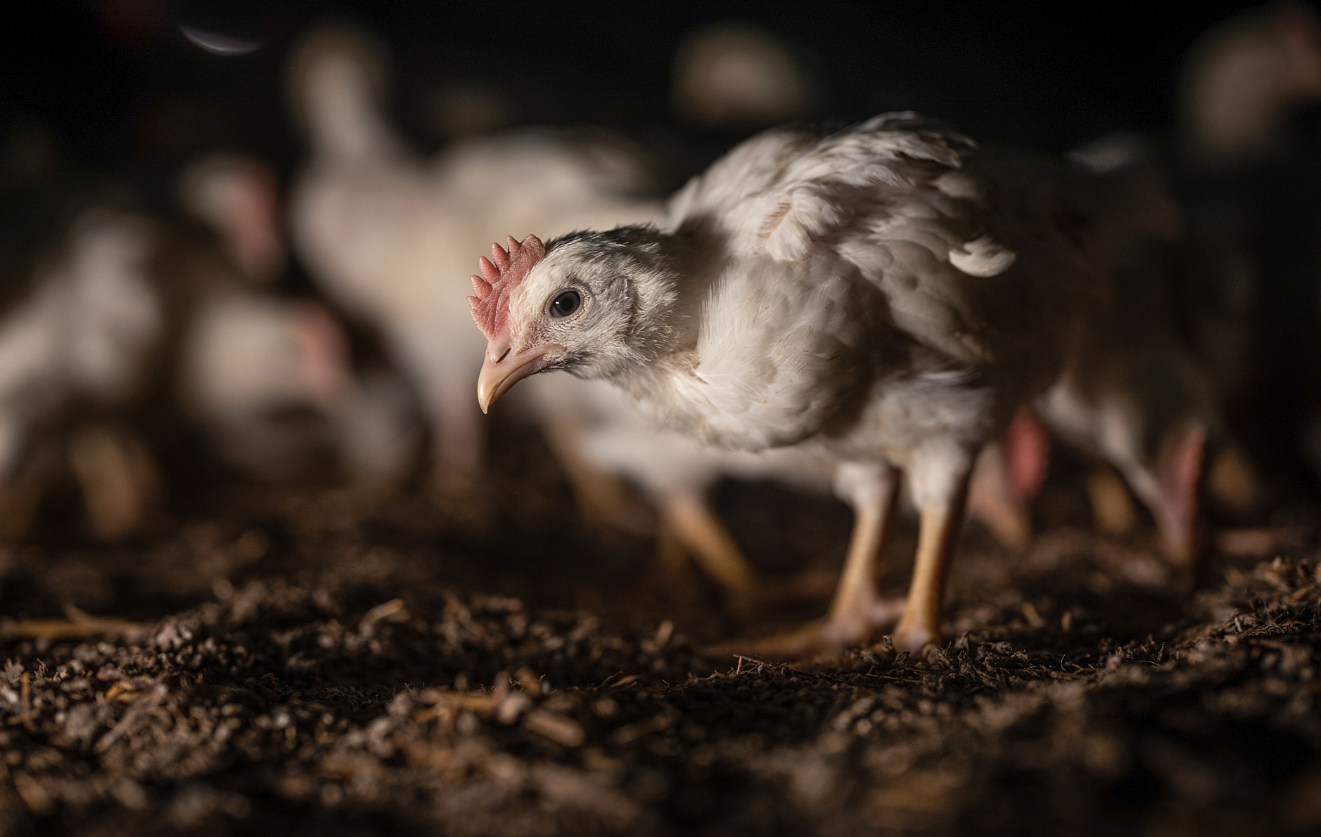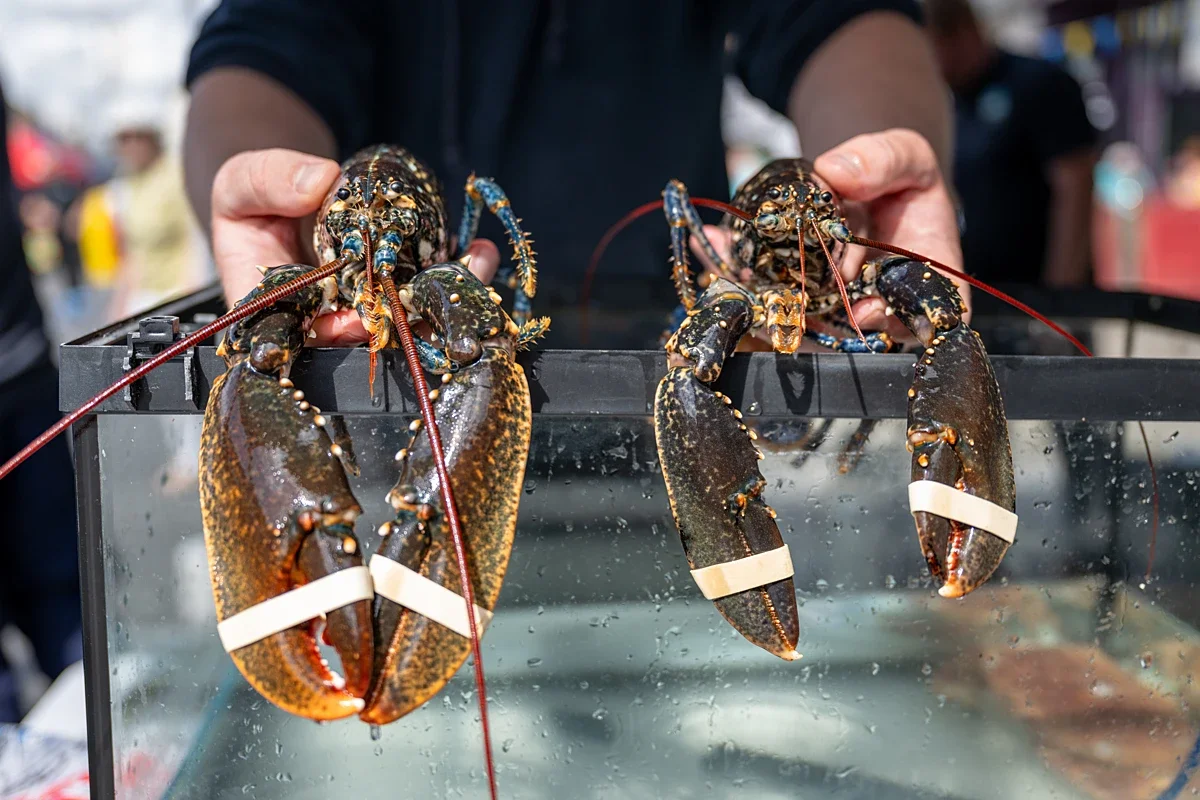Starbucks and Chipotle among companies still using infamous “frankenchickens”
Major companies are sourcing meat from chickens who have been selectively bred to grow so rapidly that the animals can struggle to walk or even stand up.
A “frankenchicken” lying immobilized on their side on a broiler chicken farm. Unable to stand on their own, this individual is unlikely to be upright again. Credit: Bear Witness Australia / We Animals
Starbucks and Chipotle have been named in an exposé that accuses several major food companies of failing to properly address the use of controversial “frankenchickens” in their supply chains.
The term frankenchickens is used to refer to chickens in the meat industry who are selectively bred to grow so quickly that they may struggle to walk or even support their own weight. These chickens reach slaughter weight in just six weeks - several times faster than chickens raised a century ago.
Due to the unnatural pace at which they develop, many frankenchickens suffer serious health issues, including immobility, organ failure, muscle disorders, and chronic pain. Common muscle abnormalities like white striping and green muscle diseases are even often visible in the meat sold to consumers.
Farmed animal welfare groups say that immense suffering is inherent to the genetics of frankenchickens, but the top-heavy breed of chicken still makes up most of the nearly 10 billion chickens raised for meat in the US and Canada each year.
The issue led to the creation of the Better Chicken Commitment (BCC) back in 2016, which is a set of industry standards designed by animal welfare scientists that companies can follow to help address some of the worst practices affecting farmed chickens.
Now, a recent report into corporate engagement with the BCC has revealed that some industry giants that have pledged to improve welfare conditions have failed to be transparent about their plans to end the use of frankenchickens.
Chickens on an industrial factory farm. Credit: We Animals
This includes leading brands like Starbucks, Subway, and Chipotle. Whole Foods, known for ethical product sourcing, is also named as a company that continues to sell meat from chickens who often suffer from growth-related diseases despite pledging to prohibit the use of frankenchickens by the end of 2024.
Campaign group Mercy For Animals, which released the report last year, says it is calling for an end to the use of frankenchickens in the food system.
Credit: We Animals
"Driven entirely by a goal of maximizing profits, the meat industry has made frankenchickens the norm, breeding these birds to grow monstrously large unnaturally fast”, said Chelsie Schadt, managing director at Mercy For Animals.
“Corporations want us to believe they're sourcing happy, healthy chickens, but this couldn't be further from the truth", added Schadt.
More than 600 companies around the world have already committed to meeting BCC standards by the end of 2024, including over 200 companies in the US that have pledged to eliminate the use of frankenchickens in their supply chain and switch to higher-welfare breeds.
We Have A Favor To Ask…
Species Unite amplifies well-researched solutions to some of the most abusive animal industries operating today.
At this crucial moment, with worldwide momentum for change building, it’s vital we share these animal-free solutions with the world - and we need your help.
We’re a nonprofit, and so to keep sharing these solutions, we’re relying on you - with your support, we can continue our essential work in growing a powerful community of animal advocates this year.






